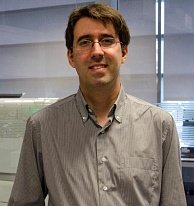How will your research contribute to extending healthy human life?
I lead the Integrative Genomics of Ageing Group (http://pcwww.liv.ac.uk/~aging/) which broadly aims to help understand the genetic, cellular, and molecular mechanisms of ageing. We are studying longevity genes, pathways and mechanisms in various model systems and in
What were the major breakthroughs made by your laboratory or companies?
Notably, we are
Can your research be commercialized in the future and is there any way to invest in this research today?
Absolutely. In the long term, I would like our work to contribute to the development of interventions that preserve health and combat disease by manipulating the ageing process. We have already identified new genes that are promising targets for drug discovery in the context of developing therapies for aging related diseases. More recently, we have also identified new compounds that extend lifespan in animal models that are promising for drug repositioning in the context of aging.
In your opinion, what are the most promising companies contributing to longevity research today?
—
Do you think there will be significant breakthroughs in longevity research in the next decade?
Yes, definitely. I’m very confident that we will develop longevity drugs in the next 10 years. I also expect that drugs targeting longevity pathways will have therapeutic applications at the level of
Do you think it is a good time for iVAO to get into longevity business and invest in biotechnology in general?
I don’t know what sort of business iVAO are in, but I would say that longevity research is on the rise and it has huge potential. If we could discover even a very modest way of retarding aging this would have tremendous commercial and medical benefits.
Can you say a few words about the upcoming conference in St. Petersburg? What are your expectations?
The previous conferences by the same organizers were outstanding, with
I hope this helps.
